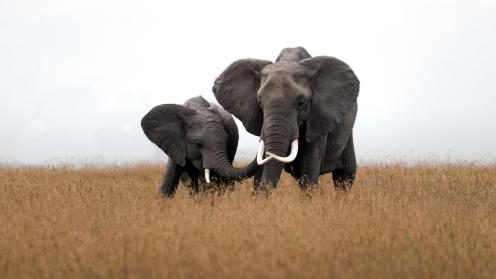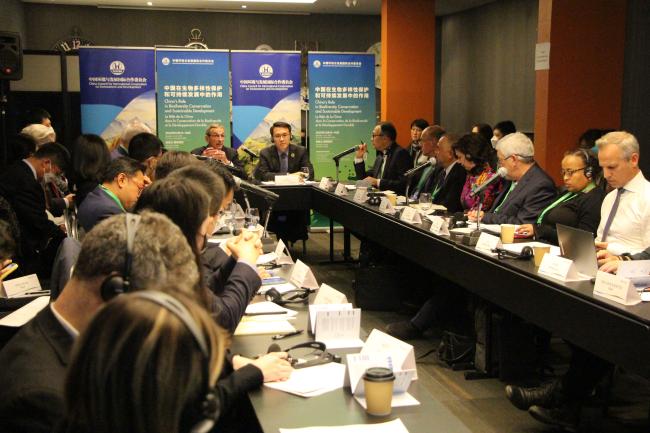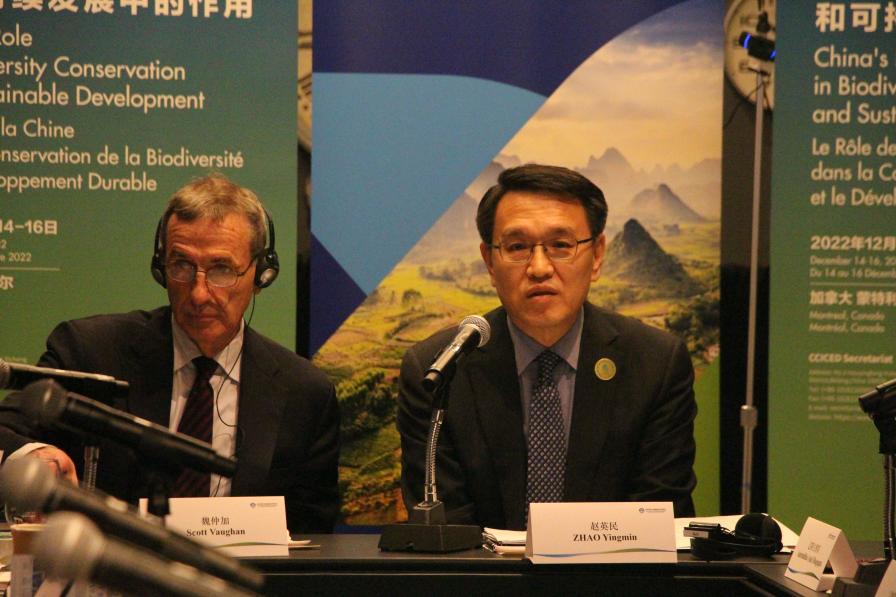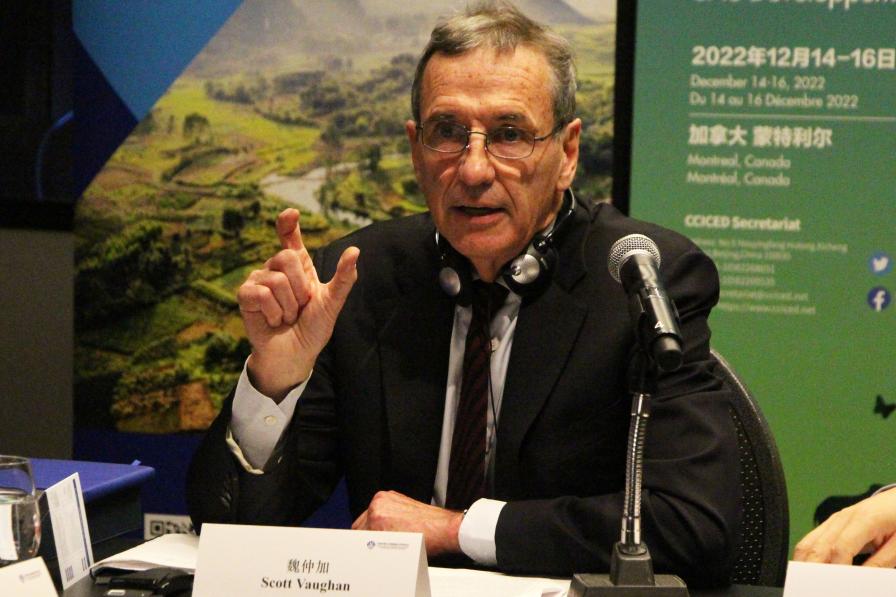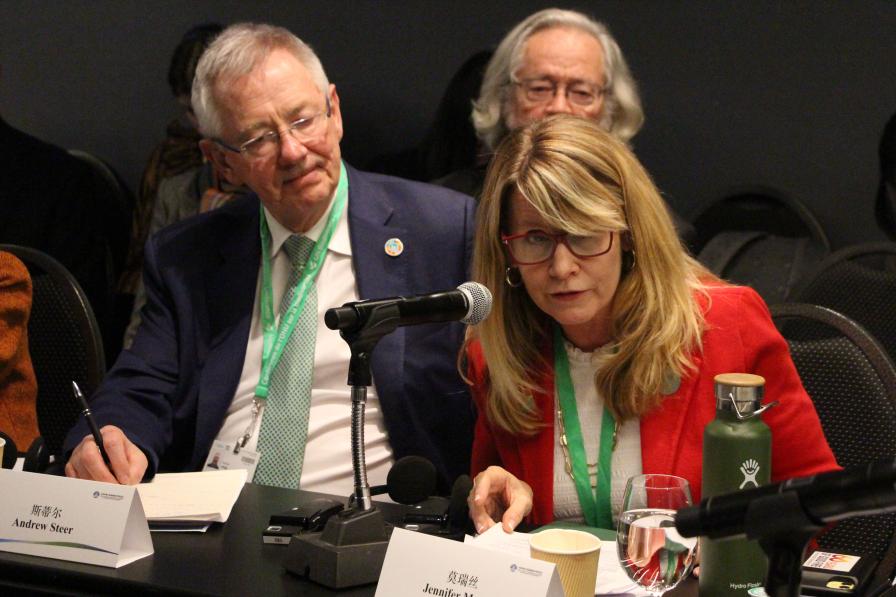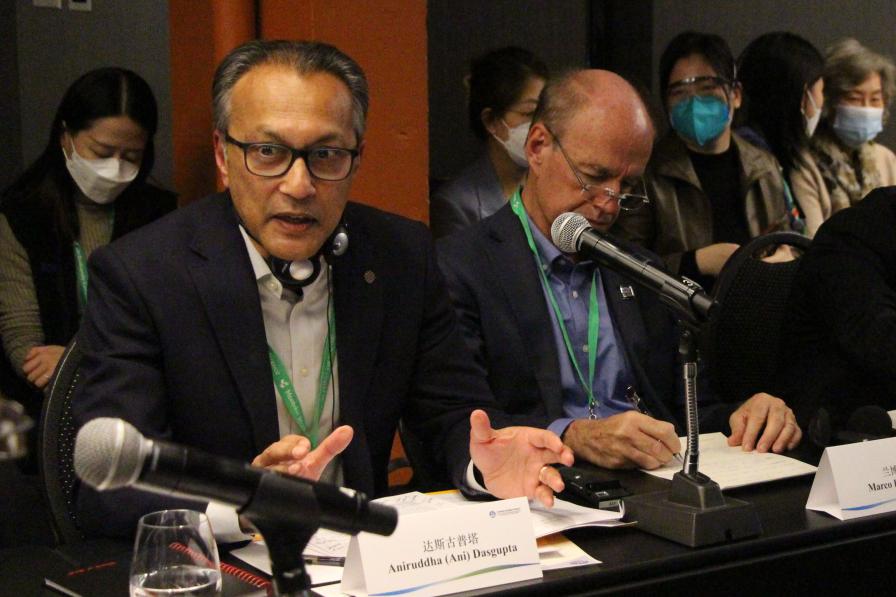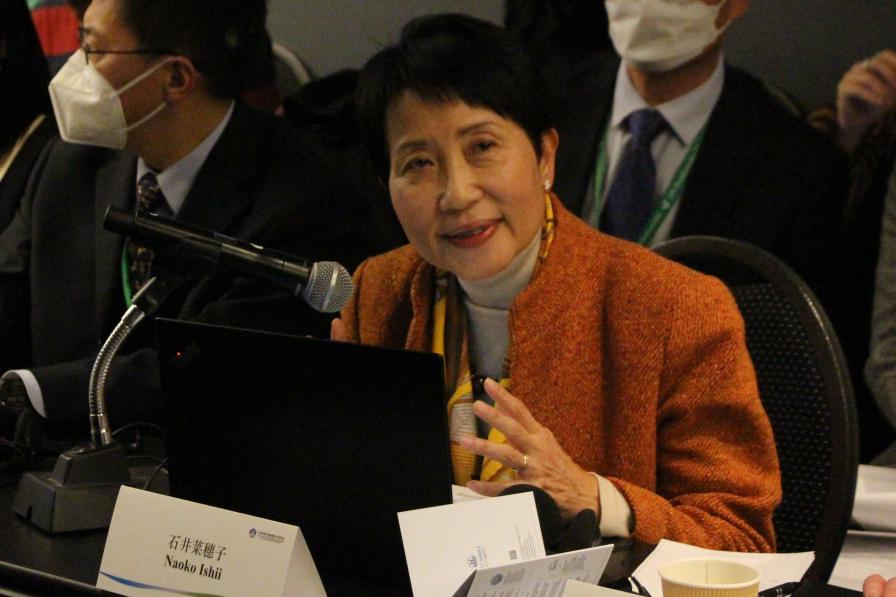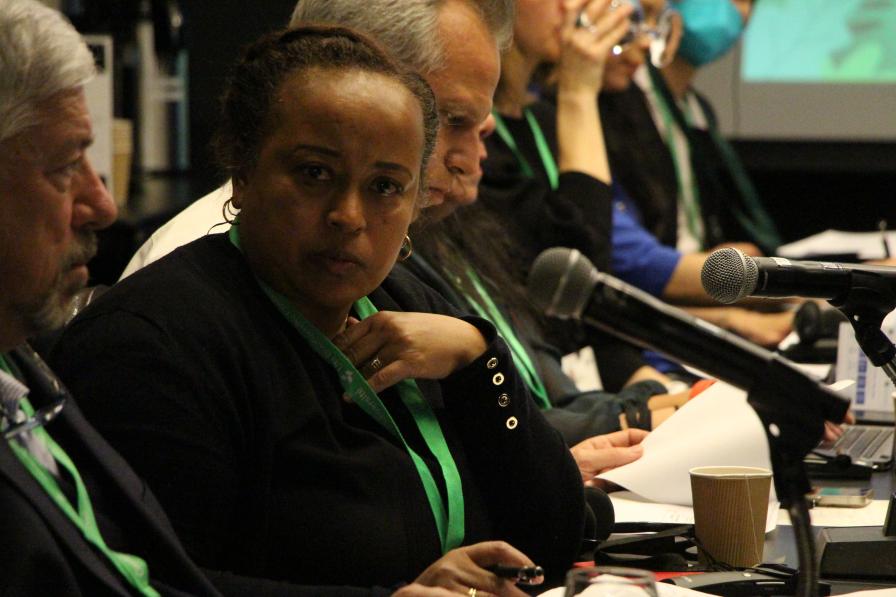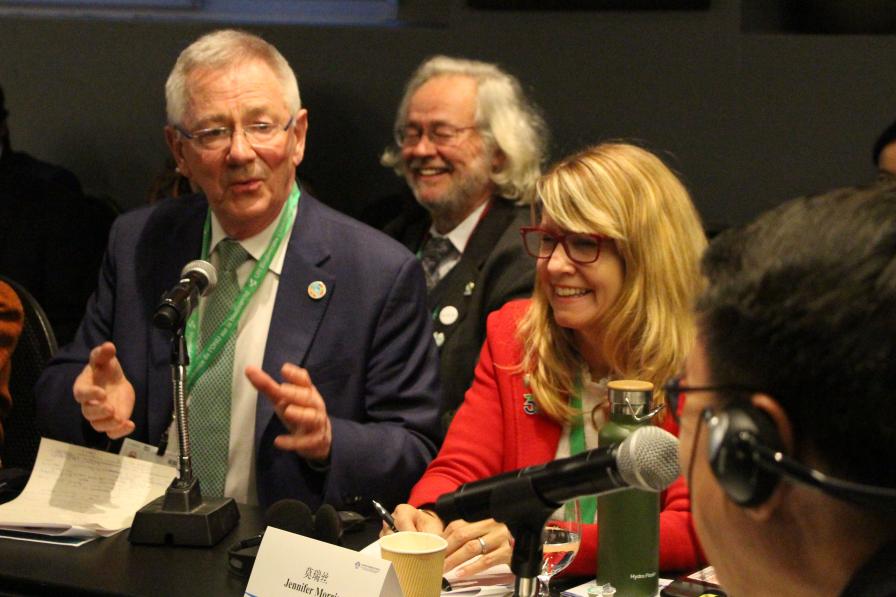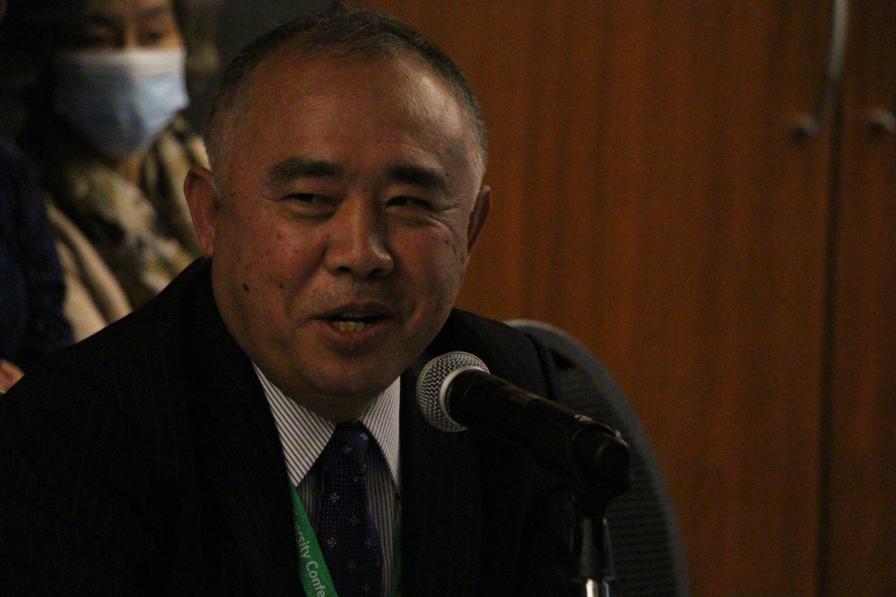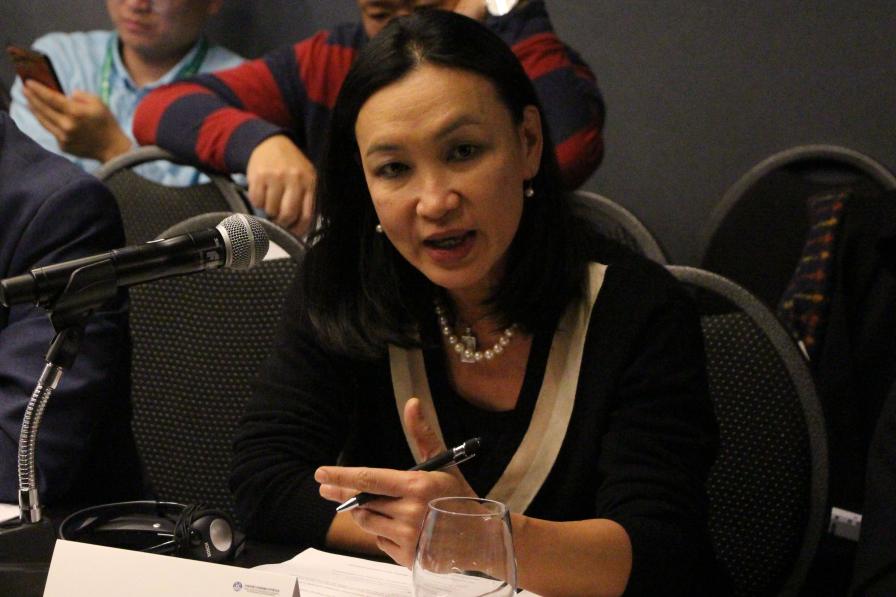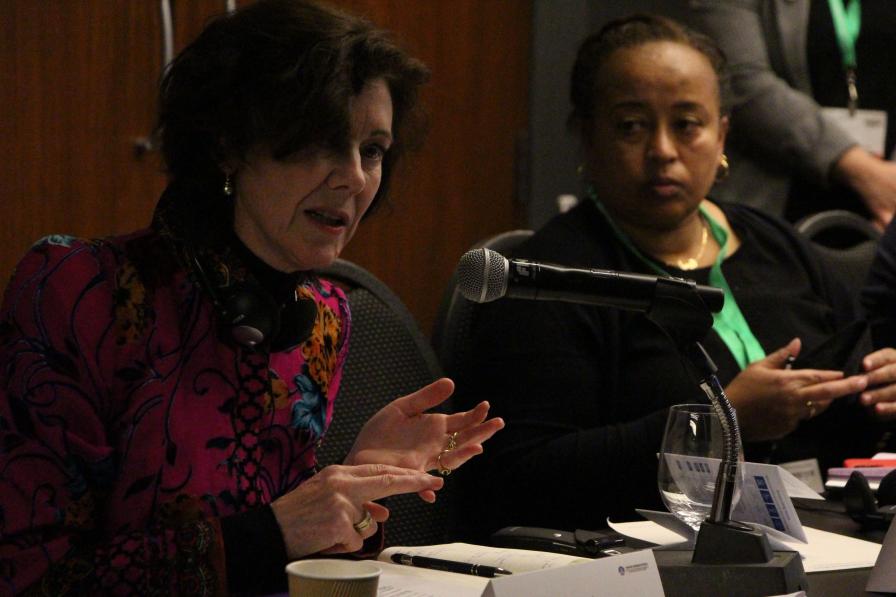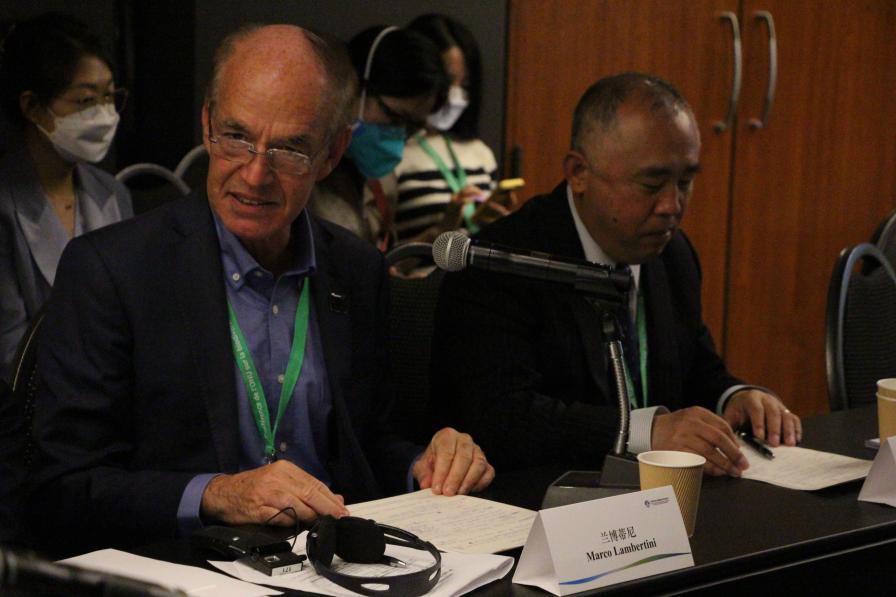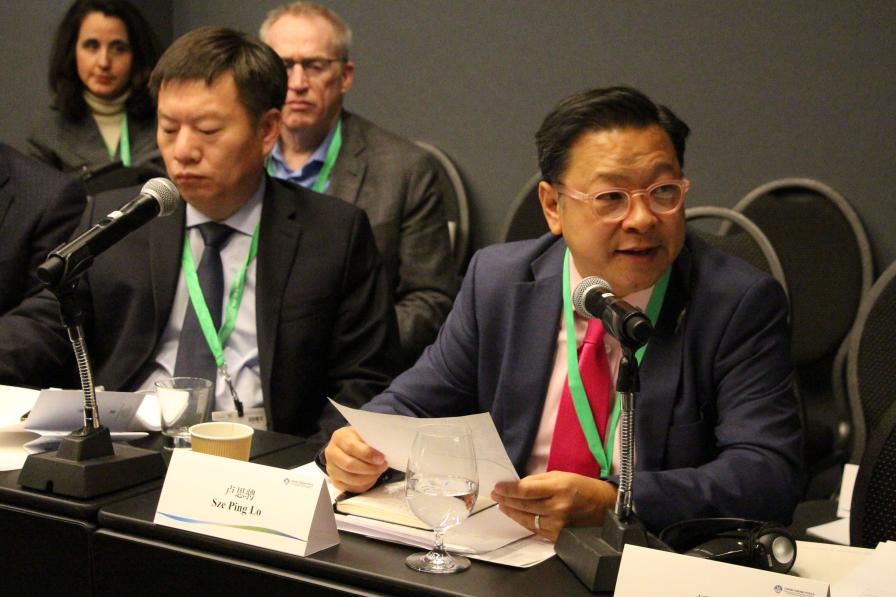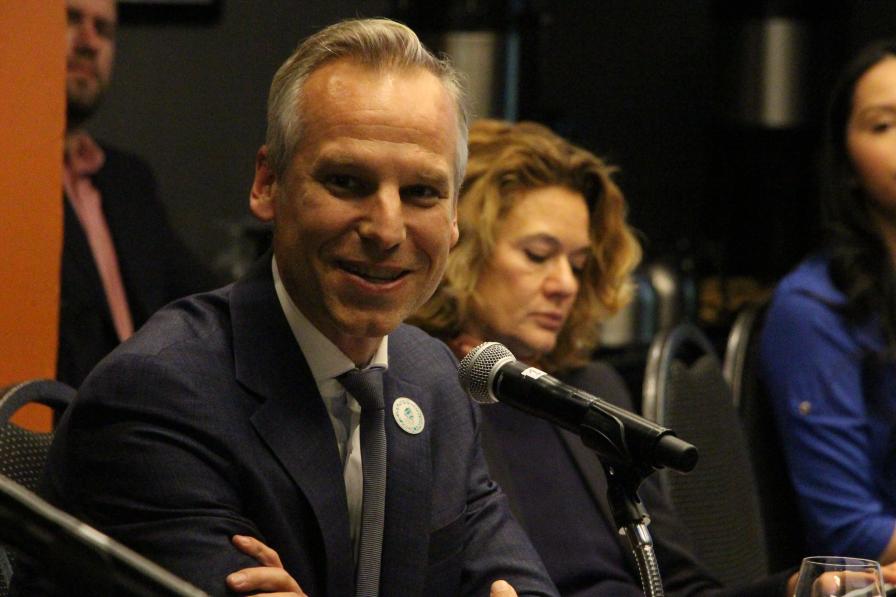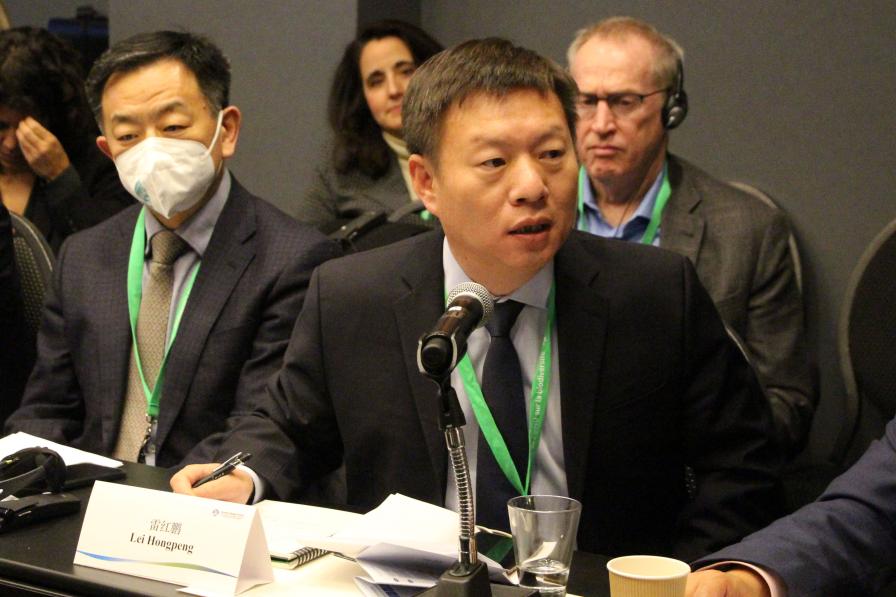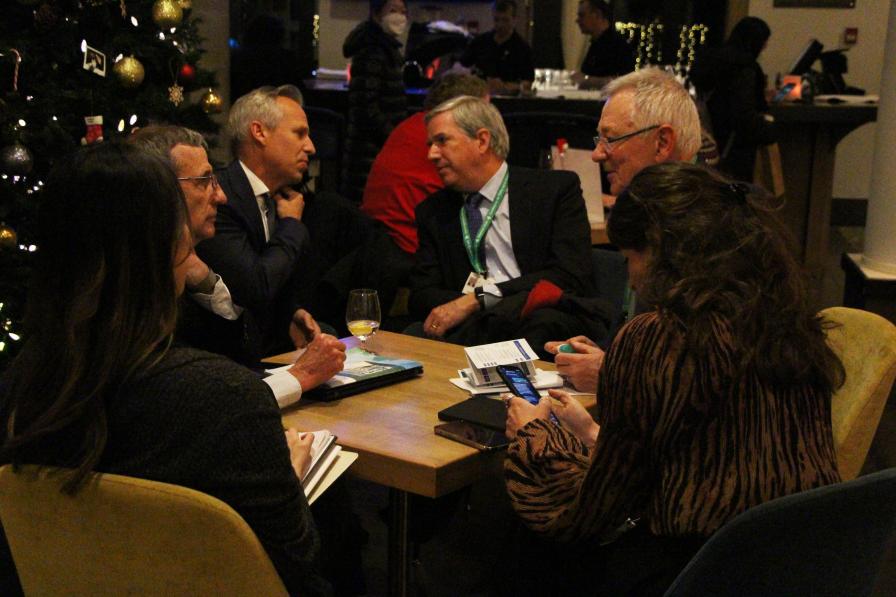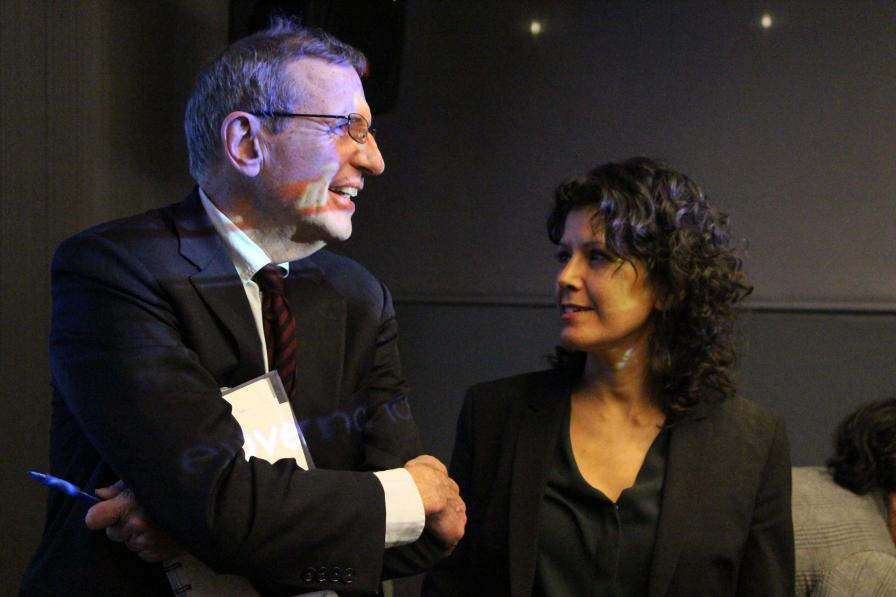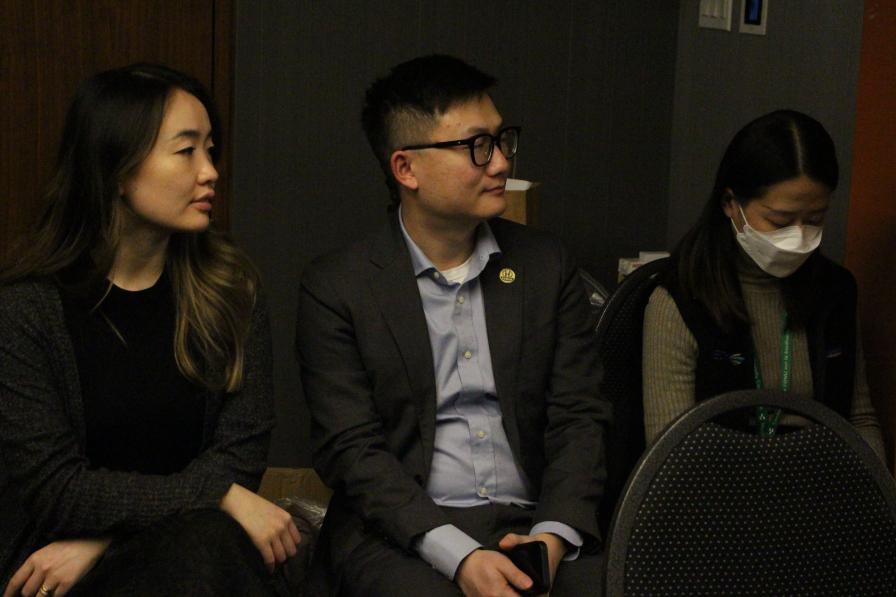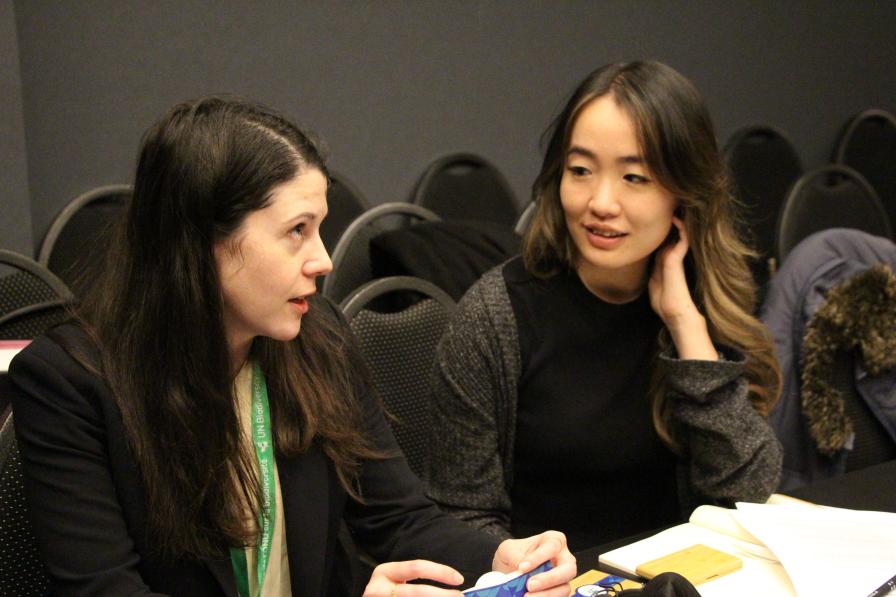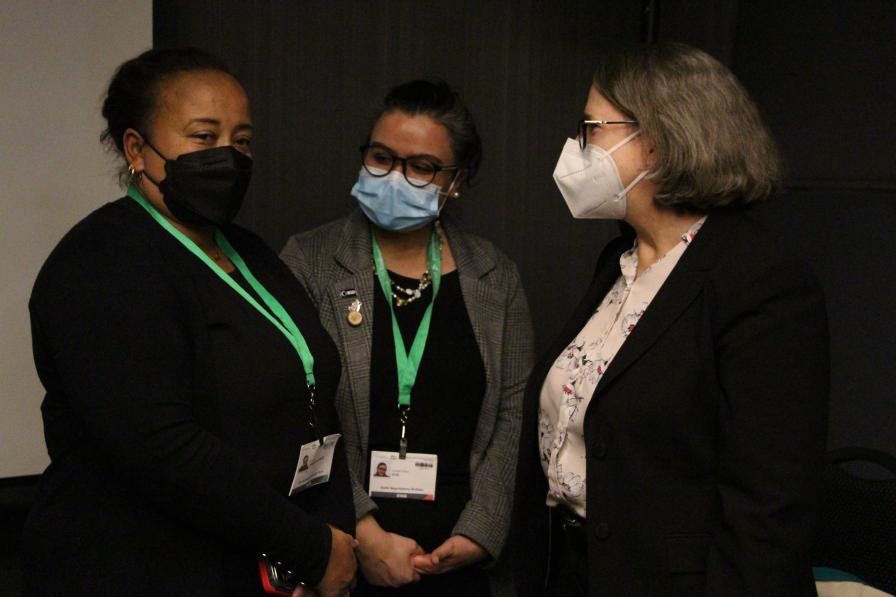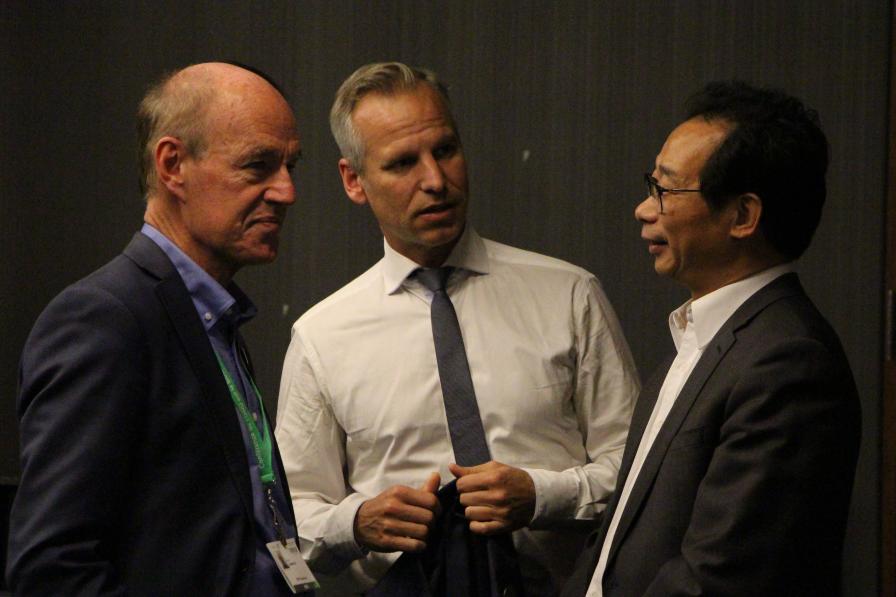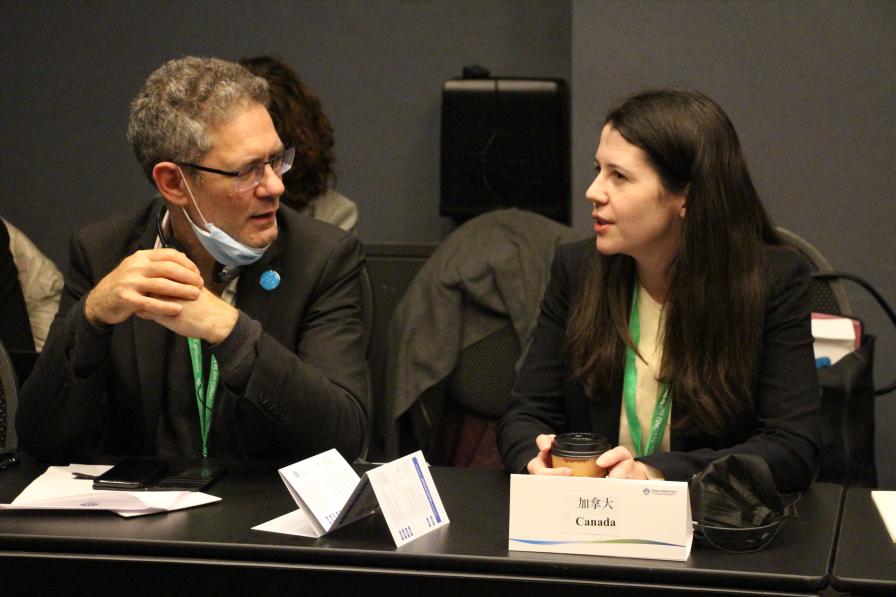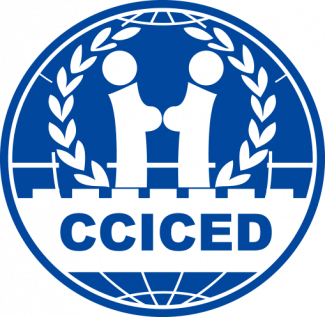Summary
Several speakers lauded recent conservation projects implemented by China, while others focused on links to the biodiversity negotiations, emphasizing the importance of nature-based solutions, accounting for natural capital, and leveraging funding to support biodiversity-related projects.
China’s Role in Biodiversity Conservation and Sustainable Development: Seminar
The China Council for International Cooperation on Environment and Development (CCICED) convened a seminar on China's Role in Biodiversity Conservation and Sustainable Development on the sidelines of the UN Biodiversity Conference at the Le Saint-Sulpice Hotel Montreal, in Montreal, Canada. Participants expressed their pleasure to be meeting again in person, after several years of virtual events due to the COVID-19 pandemic, and stressed the importance of the open discussions that CCICED promotes as a way to build trust.
During the event, speakers highlighted opportunities for China to play a leadership role in protecting biodiversity, both domestically and in collaboration with stakeholders from across the international community. Several lauded recent conservation projects implemented by China, while others focused on links to the biodiversity negotiations, emphasizing the importance of nature-based solutions, accounting for natural capital, and leveraging funding to support biodiversity-related projects. Many highlighted the value of CCICED in facilitating multi-stakeholder collaboration and communication.
Welcoming participants, Zhao Yingmin, CCICED Secretary General and Vice Minister of Ecology and Environment, China, noted this is the 30th anniversary of CCICED. He highlighted the Council’s work to gather global wisdom to support both China’s green transformation and the global endeavor to address climate and environmental change. Underscoring the importance of harmony between humans and nature, he lauded China’s efforts to build a national park system. He emphasized that the 15th meeting of the Conference of the Parties to the Convention on Biological Diversity (CBD COP 15) is “the last opportunity” to adhere to goals of achieving a green and low carbon economy.
Emphasizing the increasing difficulty of international cooperation, Scott Vaughan, CCICED International Chief Advisor, underscored the importance of data, indicators, and measurement frameworks to understand both biodiversity and the impacts of positive interventions. Highlighting the UN Environment Programme’s recent report on inclusive wealth, Vaughan explained that global gross domestic product (GDP) has increased dramatically, but on the back of natural capital, which is now in a state of crisis. He called for moving natural capital into daily decisions. He also mentioned that, in 2023, China will host the Third Belt and Road Initiative Forum for International Cooperation, which can accelerate new ambitions at scale.
Technical Support for Biodiversity Conservation Post-2020
Jennifer Morris, CCICED Member and CEO, The Nature Conservancy, congratulated China on the expansion of a full national park system. She emphasized the importance of large-scale national planning, citing China’s work to pioneer an ecological redlining system that could be used to identify degraded areas that could be used for wind and solar farms without undermining nature. Morris also highlighted the potential for China to adopt full-scale regenerative agriculture, saying this could be “truly transformational.”
Aniruddha (Ani) Dasgupta, CCICED Member and President and CEO, World Resources Institute, expressed hope for a “step change” in how nature is addressed and financed, calling for: connecting agriculture to nature action; making connections between climate and nature impacts and integrating natural systems across geographies; and clear, common metrics that are transparent. He also underscored scientific evidence that when people are involved in decision making, nature is better protected at lower costs.
Naoko Ishii, CCICED Member, Professor, University of Tokyo, Director of the Center for Global Commons, and former Global Environment Facility (GEF) CEO and Chairperson, stressed the importance of valuing natural capital. She called attention to China’s decade of experience in ecosystem services payment systems, which is based not just on GDP but on gross ecosystem product (GEP) as well.
Angela Churie Kallhauge, Executive Vice President for Impact, Environmental Defense Fund, highlighted the need to identify the drivers for change, particularly as they relate to resilient food systems. She noted tools and capacity-building activities to help small holder farmers, who are the custodians of resources in many societies. She also stressed the need to focus on people, environmental justice, and the recognition of the rights of Indigenous Peoples, among others, and highlighted that good decisions are backstopped by good data.
Sustainable Resource Mobilization for the Immediate and Effective Implementation of the Post-2020 Global Biodiversity Framework
Andrew Steer, CCICED Member, and President and CEO of the Bezos Earth Fund, underscored the importance of adopting a global biodiversity framework. He underscored that: although much funding is available, the most important thing is to redirect existing money, particularly with respect to private investment in agriculture; governments have a role, but we need “all hands on deck” and we need to think about how we can synergize our efforts; and we must design a system where any country that has signed up for 30x30 can make it work. He also called for innovation in: the way multilateral development banks work; where the money goes; and the way funds are governed. He emphasized that innovative and multi-stakeholder funds are the most effective funds.
Jo Tyndall, Director, Environment Directorate, Organisation for Economic Co-operation and Development (OECD), reviewed the findings of recent OECD reports, including the need to reform subsidies by shining a light on existing subsidies. She highlighted that economic instruments can be used to create positive incentives, including taxes and fees for services; stressed that development finance has to become more strategic; and called for getting pricing right to send nature-positive signals.
Zhang Hongjun, CCICED Member, Board Chair of the Energy Foundation China, and Partner, Holland Knight LLP, called for further strengthening non-governmental collaboration in both China and the international community; suggested CCICED members use their own language to tell vivid stories about China’s work on biodiversity and other areas; and highlighted the value of constructive collaboration between China and the international community.
Gim Huay Neo, CCICED Special Advisor, and Managing Director, Centre for Nature and Climate, World Economic Forum, highlighted the importance of thinking about how to invest in people and communities, knowledge and skills, and organizational capabilities and capacities. She underscored the need to enhance “ecological intelligence” and restore the harmonious relationship between people and nature, and called for considering how to build diverse communities, scale innovations, and look at transformation of systems.
Synergy Between Biodiversity Conservation and Other Environmental and Development Agendas
Marco Lambertini, CCICED Member and Director General, WWF International, underscored the unprecedented recognition of the links between nature and climate, food, the Ocean, and health, but said these dependencies are still not recognized in key multilateral environmental agreements. He said the global biodiversity framework (GBF) is an opportunity to formalize these synergies. On resource mobilization, he called for acknowledging that more money is needed for biodiversity, specifically for developing countries. He underscored the need for an implementation mechanism devoted to biodiversity conservation, emphasizing that the GEF was created to support the CBD, and said the creation of a new mechanism would take too long to become operational.
Sze Ping Lo, CCICED Special Advisor and Program Director, Sequoia Climate Foundation, highlighted that nature-based solutions, such as wetlands conservation and ecosystem restoration, can provide significant benefits, as well as co-benefits that address multiple societal challenges. He underscored China’s many successes with ecological restoration and conservation of umbrella species, such as pandas, and their habitats. He highlighted China’s plans to build a mangrove center in Shenzhen, noting such projects create the potential for exchanges and collaboration with other countries.
Dimitri de Boer, CCICED Special Advisor and Regional Director of Programmes for Asia, ClientEarth, highlighted the need to foster trust in this age of conflict and said CCICED helps with this objective. He highlighted successes in China’s efforts to reduce wildlife smuggling into China, and suggested thinking about whether local governments could be nudged from a law enforcement angle to address climate change. He also highlighted the development of the traffic light assessment system for the Green Belt and Road Initiative and its impact on greening it.
Lei Hongpeng, CCICED Special Advisor and Regional Director, Southeast and East Asia and Chief China Representative, Children’s Investment Fund Foundation, highlighted the role of CCICED in promoting communication. He also emphasized the need for sustainable development in Africa and to address the challenges that small and medium-sized industries face.
During a discussion period, participants also highlighted the International Monetary Fund’s blog post from earlier in the day supporting climate-for-nature debt swaps and highlighted ongoing work on biocredits.
Closing Remarks
In his closing remarks, Vice Minister Zhao Yingmin expressed appreciation for the exchange of ideas and highlighted that the international community is looking forward to the adoption of an effective GBF. He noted that ambitious goals must be met with ambitious financing and highlighted that CCICED is a policy consulting organization that seeks to listen to inputs from the international community. He invited participants to attend the CCICED side event on Friday, 16 December.
